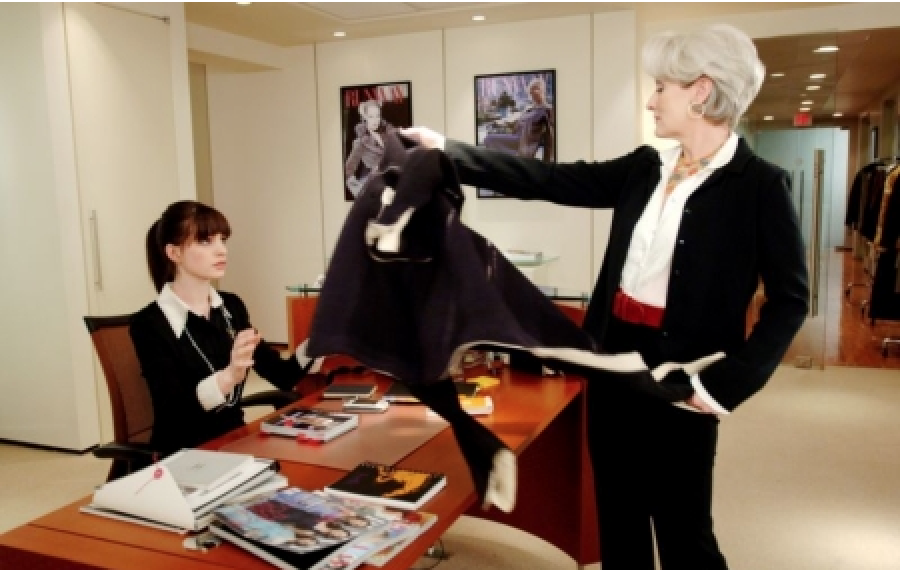It’s hard to be engaged and love your job when you believe that your boss is a nightmare or you’re stuck in the middle of a toxic workplace.
The biggest mistake I made was going to work everyday feeling scared, fearful, and as a result not being prepared to try new things, take risks – or even do my best work. Trying to “get” your boss to like you can be very unproductive. The problem was I did not have confidence in my own skills.
Last century I worked for an Australian airline called Ansett (it is now more than a decade since they ceased operations). I was so excited when I got the job as a young marketer for such a prestigious brand. Yet within six months I would lie about where I worked so that people did not tell me their bad air travel experiences.
The general manager at the time would walk through an airport and never acknowledge anyone, never a smile – or even say a ‘how’s it going mate?’. Simply any employee who saw him thought he hated them. Including me.
This aggression flowed throughout the business. I’m sure my direct manager hated me too. I could never get a meeting with him to discuss my work. When I did finally meet with him, he would smoke in the office with the door closed – I did mention this was last century – and talk at me. I was never able to contribute. Ever.
The toxic relationship with my direct manager and other managers in the business meant that I did not do my best work. What we would call “a career-limiting move.”
So what should I have done in this situation (rather than hide)? Is it a case of walking out with my tail between my legs and giving up the dream? Well, at the risk of appearing flaky, let’s cast our gaze to Hollywood for advice…
Remember poor Andrea Sachs (Anne Hathaway) in The Devil Wears Prada? She’d scored every woman’s dream job working for fabulous fashion magazine Runway. That was until she met her boss Miranda Priestley (Meryl Streep) and discovered that her fellow employees suffered from, let’s say, poor morale – not to mention being completely petrified of putting one foot out of place within eye or earshot of the boss. The office culture was downright toxic.
So what lessons do I wish I had learned back in my Ansett days from Andrea?
#1 Stick at it in the beginning. No one can deny that Andrea didn’t dedicate herself to the job 100 percent. She gave up her personal life and her desire to be a journalist, neglected her friends and even missed her boyfriend’s birthday, all because she felt she had no choice but to put her job first. There’s nothing wrong with being committed to your job, but if your employer expects all this of you, it’s a pretty clear indication that your life outside the office is not of any significance to them. They certainly won’t care or remember the name of your husband/wife/child/dog. Yet all research indicates that to be productive, happy and engaged at work, people need to feel valued and appreciated as individuals. Not treated like slaves.
#2 Don’t step on the little people. Be nice on the way up, you never know who you’ll meet on the way back down. Think about the relationship between Andrea and her colleague Emily (Emily Blunt). No matter how many snide remarks or awful tasks were thrown Andrea’s way, she maintained her grace, integrity and positive attitude. Which leads to the third lesson…
#3 Be guided by your values. Don’t lose sight of who you are or why you’re there. But, if the job is leading you to question your own values or requires you to compromise them – as was the case when Andrea’s colleague was cheated out of a promotion – then maybe it’s time to just…
#4 Walk away. In the end, Andrea discovered this wasn’t in fact her “dream job”, and it wasn’t worth losing herself or what she stood for. If the job or the workplace is causing you to second-guess your judgement, your values or the way you live your life, then it’s not the place for you.
In the beginning I worked hard trying to impress the boss – because after all we do have to start somewhere, like Andrea – but in the end I did walk away. I made sure that it was a career move I wanted to make. My next job was as a marketing manager for Apple Australia – now you could not get two more different experiences.
So here’s a message to all employers: culture is the backbone of happy, productive workplaces. If you don’t have a good one – or at least make an effort to fix a poor one – your people will walk away in the end. Join us in our Employee Engagement Network on LinkedIn Groups and have your say. This article first appeared on as part of the LinkedIn Influencer program

